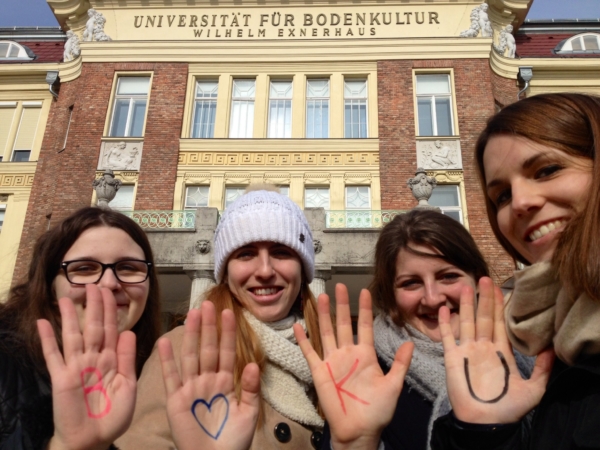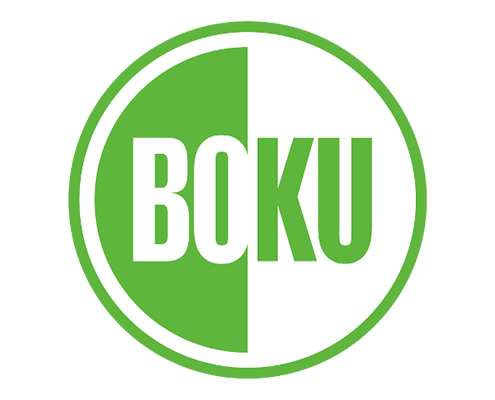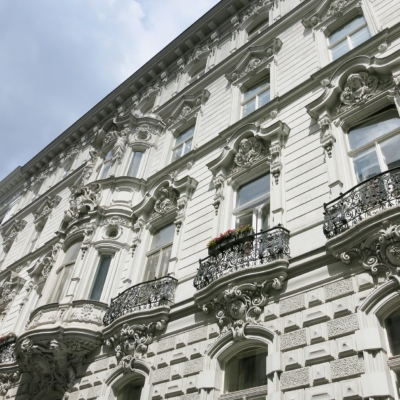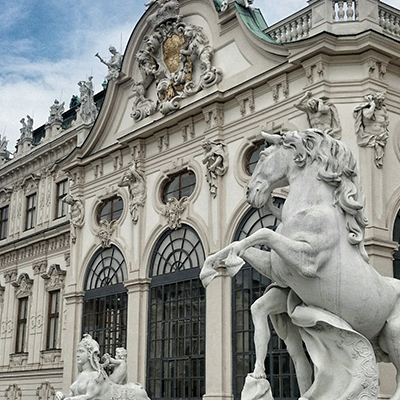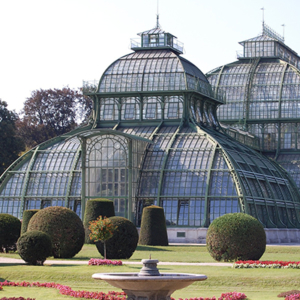Vienna
Vienna, Austria’s capital city, is located in the East of Austria. Vienna has 1.9 million inhabitants, of which almost 180,000 are students. Vienna’s close proximity to Slovakia, the Czech Republic and Hungary makes it a great starting point for exploring the neighbouring European countries by bus, train or even by boat.
Austria’s capital owes its nickname “the City of Music” to many famous composers and musicians who lived and worked in the city. Vienna is also known for its monumental imperial architecture, an abundance of beautiful palaces, its coffee house culture and its high quality of life. The Donauinsel, a long artificial island in the Danube river and many other parks offer numerous opportunities for leisure activities.
To find out more about Vienna, visit the city’s official website.
BOKU-International Relations’s provides information on planning your life in Vienna.
University of Natural Resources and Life Sciences, Vienna – BOKU
The University of Natural Resources and Life Sciences, Vienna was founded in 1872 as a college of agriculture and forestry. BOKU sees its responsibilities in responding to current social and ecological challenges and covers the broad field of natural resource management, from agricultural issues to biotechnological research, always guided by the need for sustainability. BOKU has a strong international focus, with almost 25% of its 11,000 students being foreign students and 300 partner institutions worldwide. It is active in research and teaching of subjects in 15 departments and currently offers 7 Bachelor programmes, 27 Master and 9 Doctoral programmes. BOKU is among the top 30 universities in the QS World University Ranking in the subject of “Agriculture and Forestry”.
BOKU’s main campuses, Türkenschanze and Muthgasse, are located in the 18th and 19th district of Vienna, in a beautiful green and calm environment, around 5 km from central Vienna. Both can be reached via metro and bus. Read more about BOKU’s campuses and services
Accommodation
Accommodation in Vienna can be relatively expensive. Expect to pay between €300 and €670 for your accommodation. Students can choose from a wide range of student residences, shared flats or private apartments. Make sure to arrange your accommodation well in advance. Have a look at the links provided by BOKU-International Relations for further information on accommodation opportunities in Vienna.
Residence Permit and Registration
Immigration procedures differ for students depending on their country of origin.
Students from EU/EEA Countries or Switzerland
- do not have to apply for a visa to stay in Austria
- a valid travel document (passport or identity card) is sufficient for your entry and stay in Austria
More information can be found on the OEAD database
Students from Non-European countries (staying up to 6 months)
- must apply for a visa C or D at the respective Austrian authority (embassy or consulate-general) in their country of residence:
- Visa C – for stays of up to 90 days. Exception: students who can enter Austria without a visa
- Visa D – for stays of more than 90 days up to a max. of 180 days. Exception: Japanese nationals
Further information can be found on the OEAD database.
Exception for students from third countries with a residence title “Student” from another EU country (except for Great Britain, Ireland and Denmark)
Students who are taking part in a Union or multilateral mobility programme (e.g. Erasmus+) or for whom an agreement between two or more higher education institutions is in place and who are in possession of a valid residence title “Student” of another EU member country (not: Great Britain, Ireland and Denmark) are allowed to enter Austria without requiring a visa and to stay in Austria for up to 360 days.
Please find further information about this exception at the homepage of BOKU-International Relations.
Students from Non-European countries (staying for more than 6 months)
- require a residence permit “Student”.
Find more information on the homepage of BOKU-International Relations and the OEAD database.
Exception for students from third countries with a residence title “Student” from another EU country (except for Great Britain, Ireland and Denmark)
Students who are taking part in a Union or multilateral mobility programme (e.g. Erasmus+) or for whom an agreement between two or more higher education institutions is in place and who are in possession of a valid residence title “Student” of another EU member country (not: Great Britain, Ireland and Denmark) are allowed to enter Austria without requiring a visa and to stay in Austria for up to 360 days.
Please find further information about this exception at the homepage of BOKU-International Relations.
Everyone living in Austria is required by national law to register with the local authorities within three (working) days after arrival. The documents required are a valid passport and the residence registration form (“Meldezettel”).
In addition, EU/EEA citizens who are staying in Austria for more than three months, need to register with the competent municipal authority at the latest 4 months after the registration in Austria. Find out more about registration in Austria.
Climate
Vienna has an oceanic climate with warm to hot summers (average high temperatures of ca. 27-30 °C and dry, cold and snowy winters. It may be quite windy throughout the year.
Transportation
Vienna has an extensive network of public transport. The underground, trams, busses and trains can take you to any place in the city. On weekends the underground runs 24 hours a day. During the week night buses operate when the underground is closed.
Visit Wiener Linien or AnachB for timetables and route maps.
Another popular option for getting around in Vienna are bicycles, e.g. second hand bicycles or public bike rental service. Find out more about transportation and student tickets.
Living expenses
The cost of living in Vienna is average for European standards. International students can expect to spend about € 900 to 1,100 per month. Find out about the costs of living in Vienna.
Estimated monthly expenses:
Last updated: 25.09.2024


